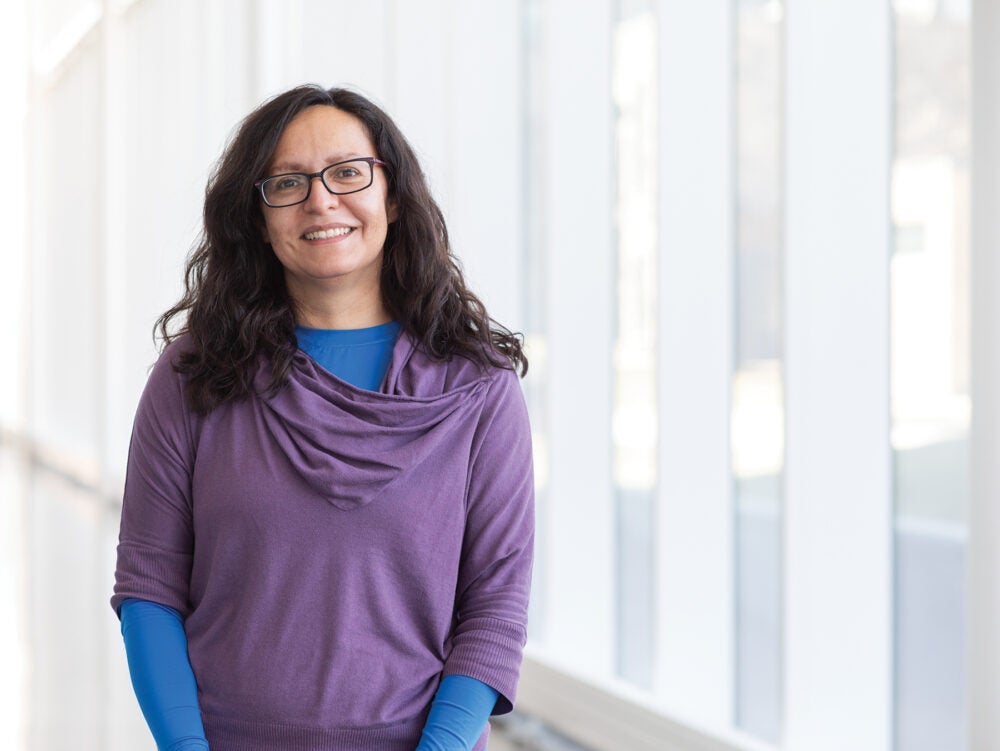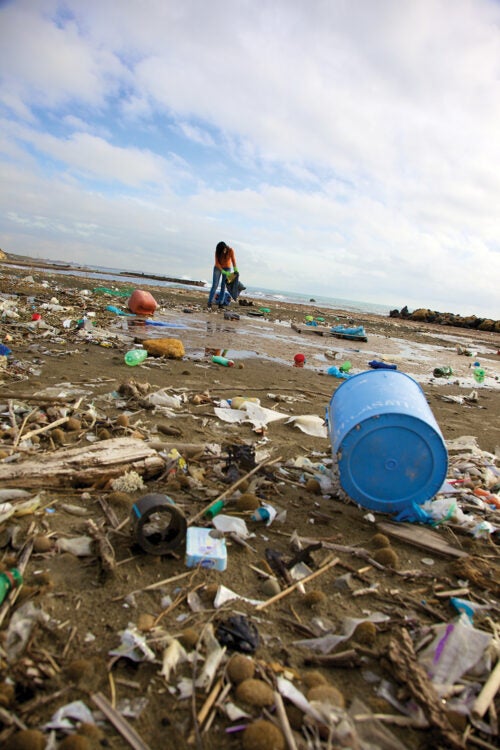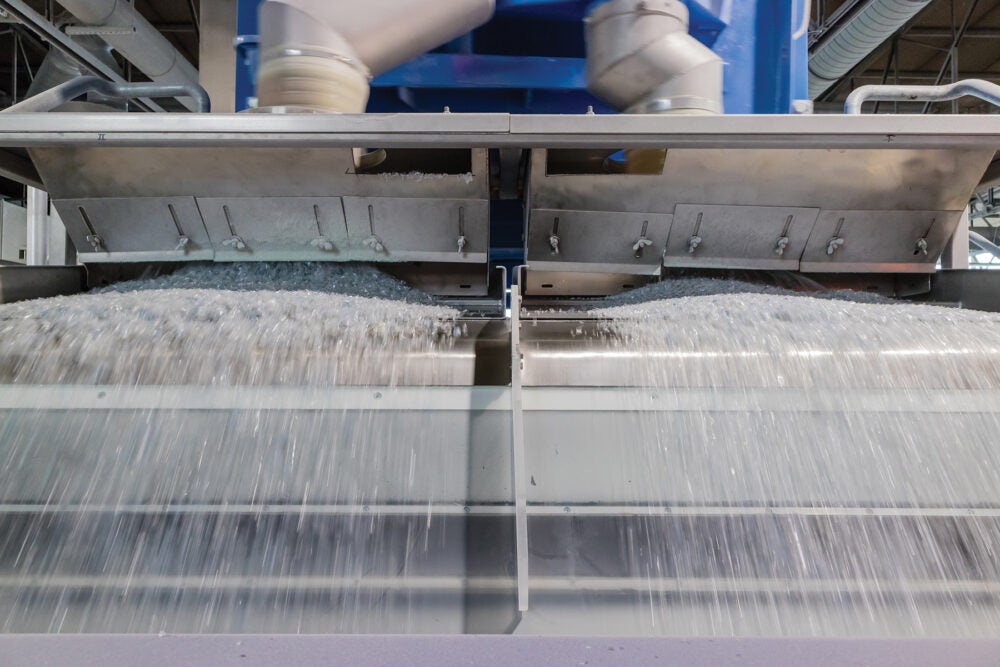Written by Clea Harrelson ’20
Vinka Oyanedel-Craver wants to give plastics new life.
A professor of civil and environmental engineering and associate dean of research for the University of Rhode Island (URI) College of Engineering, Oyanedel-Craver aims to find ways to recycle plastics while limiting greenhouse gas emissions produced by the process.
“We want to make educated decisions, not just about one stage of a product, but about plastics from start to finish,” she says. “When you are in the process of developing technology, it’s much easier to change things.”
Oyanedel-Craver is the Director of the URI Plastics: Land to Sea COLAB (co-laboratories) initiative, launched under URI’s Division of Research & Economic Development, and part of a group interested in combining innovation in recycling, textiles, and sustainability to ensure sure the right plastics get put to the right use.

She says she first started thinking about plastics as part of her work in wastewater treatment.
Vinka Oyanedel-Craver wants to give plastics new life.
While developing new methods to remove microplastics from wastewater, she prioritized using existing infrastructure. According to Oyanedel-Craver, by removing plastics we add material extractions to build new equipment. If the solution requires new energy costs and shifts the burden somewhere else, you must account for that. This inalienable fact led her to explore circular economies and life cycle assessment.
Life cycle assessment is a methodology for assessing environmental impacts through the whole life cycle of a product or service, guided by international standards. Oyanedel-Craver describes the standards issued by International Organization for Standardization an independent, nongovernmental organization, as critical reference points that help establish common ground for how industries and researchers can approach thinking about their impact.

“Nothing is zero-impact,” she says. “There will always be a trade-off, but what we can do is minimize the negative impacts.”
Fully assessing the life cycle of a product requires merging many different skill sets. This type of work can also help save time and money.
“That’s why the COLAB is so important,” Oyanedel-Craver explains. “Working together across the University, we can deliver more than the sum of our parts. We are working to connect all our areas of expertise together.”
“We want to make educated decisions, not just about one stage of a product, but about plastics from start to finish.”
—Vinka Oyanedel-Craver
Alongside Associate Professor Karl Aspelund and Assistant Professor Izabela Ciesielska-Wrobel, both in the Department of Textiles, Fashion Merchandising and Design (URI College of Business), Oyanedel-Craver is exploring how recycled plastics and life cycle assessment might be integrated into textile production.
“We are thinking about how to build a circular economy for textiles,” she says. “Since textiles shed plastic particles while being washed, we are hoping that we can take waste and put it in a new manufacturing cycle.”
One of the challenges the group faces is that not all plastics are the same nor can they be treated and reused the same way.

Oyanedel-Craver explains, “Plastics are much more than just polymers, they also contain many additives such as plasticizers, flame retardants, dyes, and many others. But the composition of plastics from the 1950s is very different from today, and it’s possible that we’ll have to deal with banned substances in some materials. So, if we’re collecting large amounts of plastic from the ocean, not all of that can be used in the same way.”
Life cycle assessment is a methodology for assessing environmental impacts though the whole life cycle of a product or service guided by international standards.
According to Oyanedel-Craver, this is why it’s so important to have COLAB team members like Seray Ergene, assistant professor of management in the URI College of Business, who can help connect future research findings to real companies who are interested in changing their practices.
“That’s what makes our goals unique,” she says. “We want to combine life cycle assessment with risk assessment to channel plastics into the recycling and manufacturing processes most appropriate for that material.”
In March of 2022, the United Nations Environment Assembly adopted a resolution that will initiate a process to negotiate a legally binding global agreement to end plastics pollution, to be finalized by 2024. This resolution specifically highlights the need to address the full lifecycle of plastics.
“The timing of this work is particularly important given the international treaties being negotiated,” Oyanedel-Craver adds. “This will likely impact businesses directly, and our work can add to this type of international conversation.”
The United Nations environment assembly adopted a resolution that will initiate a process to negotiate a legally binding global agreement to end plastics pollution.
While Oyanedel-Craver and the COLAB team are still in the process of applying for funding to support future projects, she says she is excited by the growing momentum of conversations related to circular economies for plastics.
“That’s the vision,” she says. “That one day this will be standard, and all companies will be tracking their materials and impact.”
